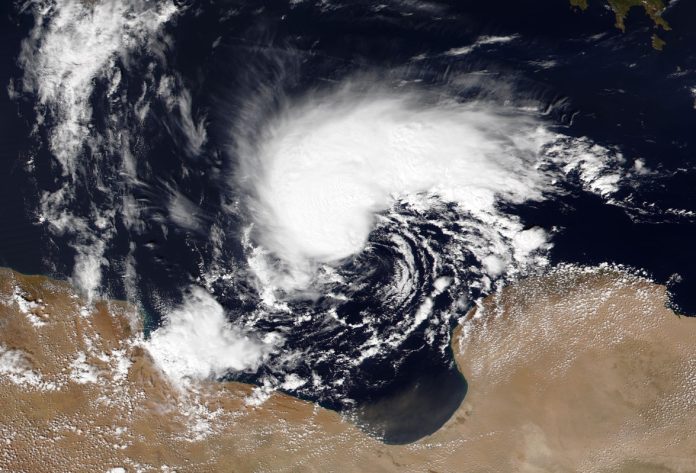Scott Jones
“I have lived through two civil wars and a revolution. I work in a hospital, I see people die from the armed conflicts but nothing like this. This is overwhelming.” This is how one doctor working in Benghazi described the devastating floods in Libya on BBC Radio.
The death toll could hit a horrifying 20,000. The official total is already over 10,000, with at least the same again believed missing or dead as the sea ‘constantly dumps’ bodies.
The epicentre is the eastern port city of Derna, swathes of which were wiped out by a gigantic flood, unleashed after rains from a large storm burst dams above the city on the night of the 10 September. Most were asleep as buildings were simply swept away.
Since the Western-backed overthrow of Libyan leader Muammar Gaddafi in 2011, Derna, like much of the North African country, has been fought over relentlessly, changing hands between warlords, Islamic jihadis and the government. It is now under the de facto military rule of Khalifa Haftar.
Floods here, even given the increasing ferocity of climate change-induced weather, are not unprecedented. Disastrous floods hit in 1945 and 1986 for example. Libyan academics warned only last year that the area “has a high potential for flood risk. Therefore, dams of Wadi Derna basin needed periodic maintenance.” Combine this with a refusal from authorities to a request to evacuate ahead of the latest storm – the same authorities which have not carried out maintenance work on the dams – it’s clear that this catastrophe could have been mitigated against or avoided altogether.
The headline of Patrick Coburn’s column in the ‘i’ newspaper labelled this “a man-made disaster enabled by gangster governments”. And he is right. The military intervention of France and Britain backed by the US, that overthrew Gaddafi in 2011, effectively cut across any development of a movement by the Libyan working people to establish their control over the country. This imperialist intervention has led to chaos and war in the country, with oil wealth looted and terrorist and criminal organisations in control of different parts of the state and the nation. A result has been Libya’s effective break-up back into fundamentally the three regions which Mussolini forcibly amalgamated into one colony in 1934. Now the chaos and lack of infrastructure damaged by war and now flooding will make recovery and the distribution of aid difficult.
Socialism
In the Socialist in 2021, marking ten years after the overthrow and invasion, we wrote: “Only through self-organisation can workers and poor people take control of their own lives. This means building independent workers’ organisations and a party with a socialist programme – including calls for international solidarity – that can actually deliver on their aspirations.” Libyan revolutionaries themselves at the time put up posters saying: “No to foreign intervention – Libyans can do it by themselves”.
The Arab Spring which swept across North Africa and the Middle East in the early 2010s, like other uprisings and movements since, shows that this is possible and more needed than ever to chart a way out of the capitalist and imperialist barbarism of war, poverty, and climate chaos. Only with independent working-class parties with a socialist programme, nationalising the oil wealth of Libya, can this be achieved.







